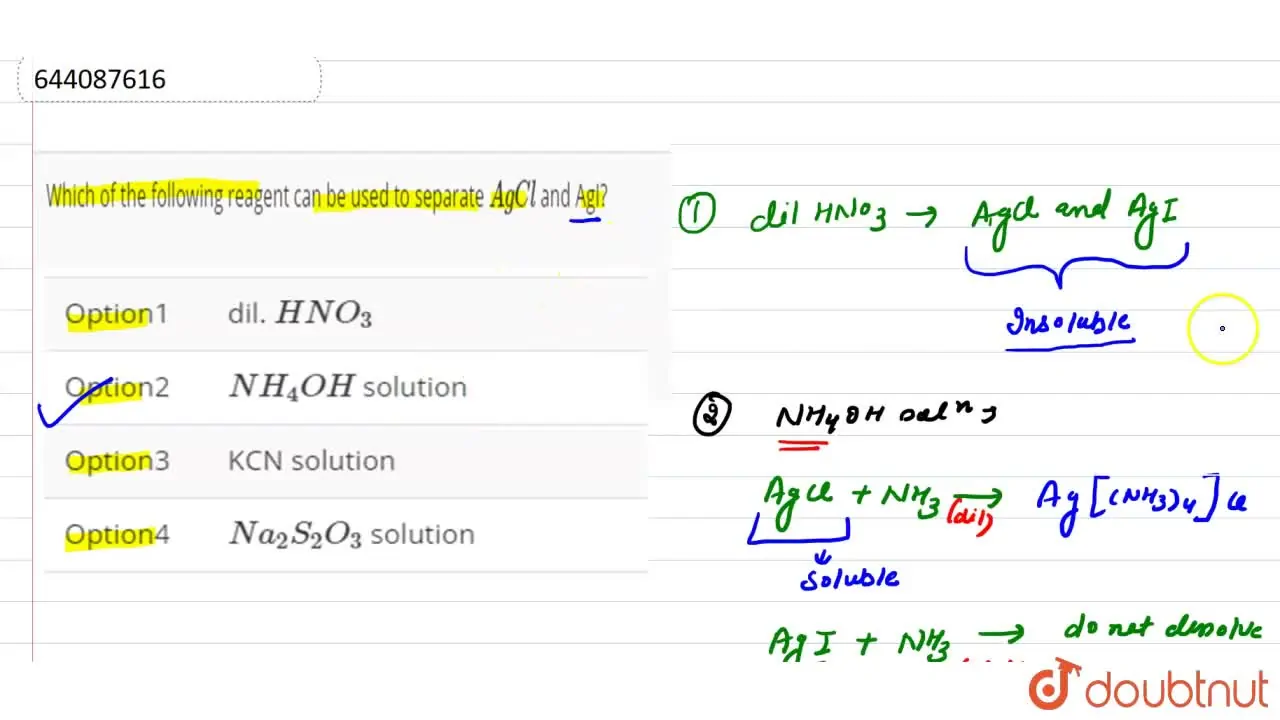Which of the following reagent can be used to separate AgCl and AgI?
dil. HNO3
NH4OH solution
KCN solution
Na2S2O3 solution
The correct Answer is:B
AgCl and AgI bond are insoluble in dil. HNO3 and both are soluble in complexing agents (CN− solution and Hypo solution), but AgCl is soluble in dil. NH3 solution whereas AgI is insoluble even in highly conc. NH3 solution.
Related Playlists
- BOOK - VK JAISWAL ENGLISHCHAPTER - TYPES OF REACTIONSEXERCISE - LEVEL 344videos
TYPES OF REACTIONS
- BOOK - VK JAISWAL ENGLISHCHAPTER - TYPES OF REACTIONSEXERCISE - ONE OR MORE ANSWERS IS/ARE CORRECT40videos
TYPES OF REACTIONS
- BOOK - VK JAISWAL ENGLISHCHAPTER - TYPES OF REACTIONSEXERCISE - SUBJECTIVE PROBLEMS42videos
TYPES OF REACTIONS
- BOOK - VK JAISWAL ENGLISHCHAPTER - s-BLOCK ELEMENTSEXERCISE - SUBJECTIVE PROBLEMS2videos
s-BLOCK ELEMENTS
Similar Questions
Which of the following reagents can be used to prepare an alkyl halide from an alcohol? Is
View SolutionWhich of the following reagents can be used to differentiate 1∘ and
3∘ alcohols ?View SolutionWhich of the following reagents can be used to prepare and alkyl halide from an alcohol (ROH):-
View SolutionWhich of the following reagents can be used to convert alkyl halide into alkane ?
View SolutionWhich of the following methods can be used to separate mustard oil and water from a mixture of the two?
View SolutionWhich of the following reagents can be used for the test of carbonyl group in laboratory ?
View SolutionWhich of the following Grignard reagent can be prepared ?
View SolutionWhich of the following reagents can be used to prepare 2-butyne by simple organic transformations?
View SolutionWhich of the following reagents can be used to oxidise primary alcohols to aldehydes ?
View SolutionWhich of the following reagents can be used to oxidise primary alcohols to aldehydes ?
View Solution


